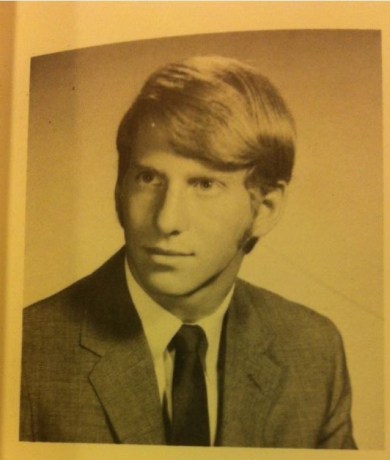Richard Haass, a former State Department official and the current president of the Council on Foreign Relations, said global affairs didn’t interest him much as a student at Roslyn High School in the mid-1960’s.
“I was a teenager,” he said. “I was more interested in sports and girls and other things that teenagers are interested in.”
He said the Roslyn of his youth had a quiet, suburban quality reminiscent of the sitcom “The Adventures of Ozzie and Harriet.“
“It seems like a very distant world,” he said. “Things seemed settled then compared to now.”
The unsettled nature of contemporary global affairs is the subject of Haass’ 12th book, “A World in Disarray,” released in January.
“The bottom line is I’m worried,” Haass said. “I’m worried about a lot of trends I see in the world. I wrote this book to help people understand what’s going on, to place what’s going on now in history and to give people a sense of why they should be concerned.”
The book says “the rules, policies and institutions that have guided the world since World War II have largely run their course,” according to a description on Amazon.com. “Respect for sovereignty alone cannot uphold order in an age defined by global challenges from terrorism and the spread of nuclear weapons to climate change and cyberspace.”
Haass said he wrote the book before the election of President Donald J. Trump but that the new commander in chief exacerbates the disorder posited in the work.
“I would simply say that the administration has added to the disarray in the world and added to the unease by questioning a lot of traditional policies,” Haass said. “Almost like with health care, they’ve been repealing a lot of traditional American foreign policy and it’s not clear what they’re going to replace it with.”
While the book presents an anxiety-inducing account of current global affairs, Haass suggested ways for everyday people to influence the course of events.
“It’s important to learn about these issues because they’re going to affect you,” he said. “I hope people ask schools to talk about it, whether Roslyn High School or the colleges parents send their kids to.”
“More broadly, people can hold their elected representatives accountable. They can withhold their vote, withhold money and withhold time from candidates they disagree with, and devote their vote, money and time to candidates they agree with. We’ve learned over the last few months that no president operates without constraints.”
Haass said all Americans should be concerned, no matter where they live.
“Whether you live in Roslyn or anywhere else, you can’t be a giant gated community that insulates yourself from what happens in the world,” he said. “Nothing in this world of ours stays local for long.”

